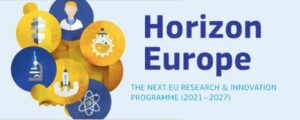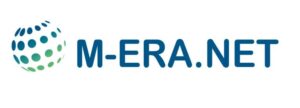Horizon Europe

„Europos horizontas“ (“Horizon Europe”) – tai nauja Europos Sąjungos (ES) mokslinių tyrimų ir inovacijų finansavimo programa 2021–2027 m. Programos tikslas – užtikrinti ES lyderystę pasaulinių mokslinių tyrimų ir inovacijų srityje. Programa „Europos horizontas“ skirta:
- stiprinti ES mokslinę ir technologinę bazę bei Europos mokslinių tyrimų erdvę;
- didinti Europos inovacijų pajėgumus, konkurencingumą ir darbo vietų kūrimo galimybes;
- atsižvelgti į piliečių prioritetus ir puoselėti mūsų socialinius bei ekonominius modelius ir vertybes.
Programa apima tris pagrindinius ramsčius:
- Puikus mokslas;
- Pasauliniai iššūkiai ir Europos pramonės konkurencingumas;
- Inovatyvi Europa.
Visa veikla grindžiama tarptautinio bendradarbiavimo, atvirojo mokslo ir partnerystės principais.
Daugiau informacijos apie programą ir dabartinius kvietimus teikti paraiškas galite rasti Europos Komisijos svetainėje. Informacija apie nacionalinius kontaktinius centrus (NKP) pateikiama Lietuvos mokslo tarybos svetainėje.
All activities are based on the principles of international cooperation, open science, and partnerships.
Lietuvos mokslo taryba

Lietuvos mokslo taryba (LMT) finansuoja ir inicijuoja tarpvalstybines programas (dvišales, trišales). Dalyvavimas inicijuotose tarpvalstybinėse programose (dvišalėse, trišalėse) suteikia galimybių aukšto lygio institucijoms iš skirtingų šalių (Lietuva-Latvija; Lietuva-Lenkija; Lietuva-Latvija-Kinija) bendradarbiauti, dalytis sukaupta patirtimi ir kartu atlikti mokslinius tyrimus. Be to, bendradarbiaujant kuriami nauji inovatyvūs tinklai.
Dabartiniai programų kvietimai skelbiami čia. Daugiau informacijos apie tarpvalstybines programas (dvišales, trišales) galite rasti LMT svetainėje.
COST Programa

COST programa (Europos bendradarbiavimas mokslo ir technologijų srityje) – tai Europos šalių bendradarbiavimo mokslo ir technologijų srityje programa. Jos tikslas – koordinuoti nacionaliniu mastu finansuojamus mokslinius tyrimus, remiant Europos tyrėjus kuriant ir įgyvendinant naujas idėjas bei iniciatyvas visose mokslinių tyrimų srityse, įskaitant socialinius ir humanitarinius mokslus. COST įgyvendinama per aukštos kokybės naujus tarptautinius tinklus, ypač tuos, kurie apima kelias mokslo disciplinas – vadinamus COST veiksmais.
Dabartiniai programos kvietimai skelbiami Lietuvos mokslo tarybos (LMT) arba COST svetainėje.
Era-net

M-era.NET – medžiagų mokslo tyrimų ir inovacijų programa, kuria siekiama inicijuoti ir padėti sujungti nacionalinius ir regioninius medžiagų mokslo tyrimus Europos mokslinių tyrimų erdvėje ir finansuoti tarptautinius projektus. M-era.Net vienija mokslinių tyrimų finansavimo institucijas iš 28 šalių.
Daugiau informacijos apie programą ir dabartinius kvietimus teikti paraiškas galite rasti M-era.NET svetainėje.
M-era.Net programą Lietuvoje administruoja ir finansuoja Lietuvos institucijas, kurios vykdo tarptautinius konkursus pagal šią programą vykdžiusius projektus, vykdančias projektus.
Interreg VI
2021–2027 m. Europos Sąjungos (ES) teritorinio bendradarbiavimo tikslo INTERREG programos tikslas – skatinti darnų ekonominį, socialinį ir teritorinį vystymąsi visoje ES, sprendžiant bendras regionines problemas, dalijantis idėjomis ir geriausia patirtimi. INTERREG grindžiama trimis bendradarbiavimo kryptimis: tarpvalstybiniu (INTERREG A), tarptautiniu (INTERREG B) ir tarpregioniniu (INTERREG C) bendradarbiavimu. Visoms INTERREG programoms įgyvendinti ES šalyse skirta daugiau nei 12 milijardų eurų iš Europos regioninės plėtros fondo. Finansavimo intensyvumas yra 70–85 % tinkamų finansuoti projekto įgyvendinimo išlaidų. Dabartiniai programų kvietimai skelbiami kiekvienos programos svetainėje:
- „Interreg EUROPE“ programa
- „Interreg“ Baltijos jūros regiono programa
- „Interreg VI A“ Lietuvos ir Lenkijos tarpvalstybinio bendradarbiavimo programa
- „Interreg VI A“ Latvijos ir Lietuvos tarpvalstybinio bendradarbiavimo programos
Eureka / Eurostars

EUREKA programa skirta finansuoti rinkos poreikius atitinkančius MTEP projektus, kuriuos vykdo mokslo ir verslo partnerystės EUREKA programos valstybių narių tarptautiniame bendradarbiavimo tinkle.
EUROSTARS programa yra tarptautinė programa, finansuojanti mažų ir vidutinių įmonių (MVĮ) vykdomus MTEP projektus ir remianti MTEP projektus, kuriais kuriami novatoriški produktai, procesai ar paslaugos, skirtos komercializuoti tarptautinėje rinkoje. Šiuose projektuose kaip partneriai gali dalyvauti akademinės institucijos, įmonės ir mokslinių tyrimų institutai.
Daugiau informacijos apie EUREKA/EUROSTARS programas galite rasti EUREKA svetainėje ir Mokslo, inovacijų ir technologijų agentūros svetainėje.
Digital Europe

Naujoji Europos Sąjungos finansavimo programa „Skaitmeninės Europos programa“ (Digital Europe) skirta stiprinti pagrindinius Europos Sąjungos (ES) skaitmeninius pajėgumus, daugiausia dėmesio skiriant dirbtiniam intelektui, kibernetiniam saugumui, pažangiajai kompiuterijai, duomenų infrastruktūros valdymui, diegimui ir naudojimui svarbiuose ekonomikos sektoriuose, tokiuose kaip energetika, gamyba, žemės ūkis ir sveikatos apsauga. Programa taip pat skatins ES pramonės ekosistemų skaitmeninę transformaciją ir sieks panaikinti atotrūkį tarp skaitmeninių technologijų tyrimų ir jų diegimo rinkoje.
Programa finansuoja projektus penkiose pagrindinėse srityse:
- Didelio našumo skaičiavimai;
- Dirbtinis intelektas;
- Kibernetinis saugumas;
- Pažangūs skaitmeniniai įgūdžiai;
- Platus skaitmeninių technologijų naudojimas ekonomikoje ir visuomenėje.
Dabartiniai programos kvietimai skelbiami čia. Daugiau informacijos apie programą galite rasti Europos Komisijos pateiktoje informacijoje.
